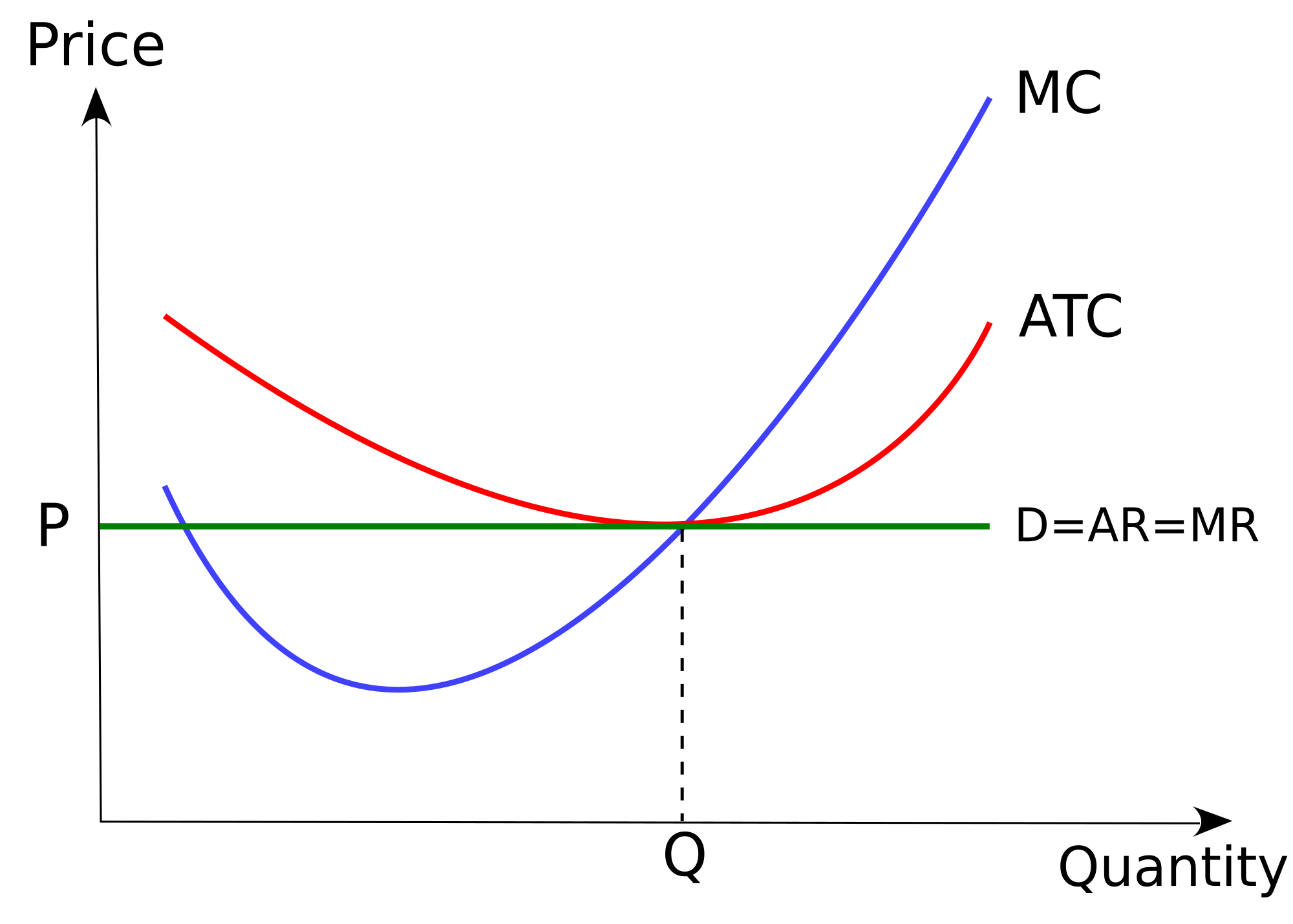Perfect Competition refers to a market where large numbers of buyers and sellers, well aware of the market conditions, compete among themselves freely so that the prices of same goods tend to be equal.
Perfect Competition is also called Perfect Competitive market or simply the perfect market. In this market no individual buyer or seller can influence the market price in any way.
According to Cournot, “A perfect market is one in which the buyers have no preferences as between different units of the commodity offered for sale, sellers are quite indifferent to whom they sell and both buyers and sellers have full knowledge of prices in other part of the market.”
ADVERTISEMENTS:
From the above definition it is clear that perfect competition is an ideal form of market where a single price of a product prevails throughout the market and sellers have no control over the price.
A Perfect Competitive market has the following basic characteristics or features.
(1) Large Number of Buyers and Sellers:
The buyers and sellers in a perfect market are innumerable. They cannot be counted. They can be compared to drops of water in the ocean or grains of sands in the desert of Sahara.
ADVERTISEMENTS:
Since there are large number of buyers and sellers, no single buyer or seller by his action can influence the total supply or price of the commodity.
The price of the commodity is determined by the combined actions of all the buyers and sellers in the market. Once the price is determined by the market, each seller and each buyer has to accept it.
(2) Homogeneous Product:
The product sold by all the seller is homogeneous or identical in every respect, i.e., quality, design, packing etc. The buyers therefore, do not prefer the product of one seller to that of another.
As a result, all the sellers have to sell their product at an uniform price. If any of the seller tries to sell his product at a higher price, his product will be out of the market.
(3) Perfect Knowledge of Market:
ADVERTISEMENTS:
Buyers and sellers have perfect knowledge about the market conditions. They are in very intimate contact throughout the market and whenever there is any change in the market that is immediately made known to all the buyers and sellers.
(4) Freedom of Entry and Exit:
There is no restriction upon the entry of a new firm in the market or upon the exit of an existing firm. Due to these characteristics, all firms can get only normal profit in the long-run. In the short-run, the number of sellers in the market is fixed.
(5) Uniform or Single Price:
Under perfect competition the price of product is determined by the market. An individual seller takes the price as given. He cannot influence the price.
His contribution to the total supply of product is negligible. So an individual seller is price-taker. He is not price maker. He can sell more or less at the given price.
(6) Perfect Mobility of Factors:
Factors of production are perfectly mobile under the perfect competition. In other words, factors of production can freely move from one industry to another.
(7) Absence of Selling and Transportation Cost:
Perfect competition assumes that all producers and purchasers of a commodity are sufficiently close to each other and as a result, there are no selling and distribution cost.

